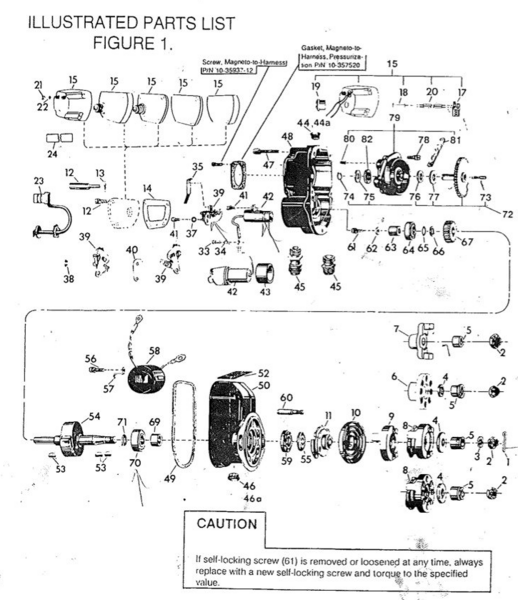
Ian
Members-
Posts
475 -
Joined
-
Last visited
-
Days Won
10
Content Type
Profiles
Forums
Gallery
Downloads
Blogs
Events
Store
Aircraft
Resources
Tutorials
Articles
Classifieds
Movies
Books
Community Map
Quizzes
Videos Directory
Everything posted by Ian
-
Jabiru and Jetstar near miss by 600ft
Ian replied to Admin's topic in Aircraft Incidents and Accidents
The key point is that we can do better. People will continue to make mistakes. Increasing visibility or all types of flying vehicles be they A380s, ultralights or drones is a good idea. While it would be nice to get ADSB on all aircraft even a simple app on a mobile phone apps which reports position to a Government service would be beneficial as numerous airport have mobile coverage especially those in congested areas. That more responsibility accrues on those with the highest risk would imply that RPT transport would have an obligation to check these sources as part of their standard ops. I know that it would be far from perfect however often the perfect is the enemy of the good. The key considerations should be: Is it better than the status quo Is it accurate enough to provide useful information. Is it ubiquitous enough to make a difference without being onerous While devices like SkyEcho2 are great, they're still too expensive for some to be ubiquitous. I'm willing to be that all involved parties in this incident had mobile phones with reception and accurate enough to make a difference. Technically, in many ways aviation is probably one of the most backward industries on the planet. People still comment on flat screen displays the size of a shoebox when every house and workplace has hundreds of similar displays many times the size. The processes associated with flying are incredibly mandraulic, error prone and expensive and this reality is evidence by accidents like this one. We really should be doing better however the reality is that similar incidents will continue to eventuate. -
Jabiru and Jetstar near miss by 600ft
Ian replied to Admin's topic in Aircraft Incidents and Accidents
All Aircraft should have a cheap and inexpensive ADSB in and out. Open source hardware/software implementation should be sponsored by the Government. ADSB should also include an identifier based on the pilots id and a nonce to stop replay attacks. The current implementation is just a bit dumb and prone to spoofing. -
C/S prop installation on Jabiru 2200 &fuel injection
Ian replied to lyle janke's topic in Engines and Props
For many people the answer is yes. Cost and effort is another manner. It provides the following advantages effective control of the fuel ratio in each cylinder, the reliability of solid state ignition, programmable ignition advance, The ability to use features like oxygen sensors to automatically optimize combustion, Strong spark for better starting, Not having to get magnetos services every 500 hours, significantly lighter in weight. Modern engines are more reliable and flexible than old engines because they use solid state technology with fewer moving parts. By comparison, wouldn't it be nice to get rid of something as complex as this with many moving parts and possible failure modes and this -
MOGAS and UL98 in Rotax 912 - Real experiences?
Ian replied to PommyRick's topic in AUS/NZ General Discussion
Running mogas doesn't necessarily depart from the recommendations of the manufacturer. There are a number of older and newer engines from Lycoming which run fine on Mogas the link below provides a from the horse's mouth view. https://www.lycoming.com/sites/default/files/SI1070AB Specified Fuels.pdf Note that Mogas is included. From a technical point of view the majority of GA aircraft will run on Mogas without an issue. There are some higher compression and turbocharged aircraft which currently require Avgas however these aircraft are in the minority. Essentially the GA industry has been subsidizing those aircraft for decades at enormous cost. If there is a significant swing towards using mogas the whole economics of the avgas industry will collapse. The problems with all of the replacement AVgas fuels is that they're more expensive and consumers don't want that. -
MOGAS and UL98 in Rotax 912 - Real experiences?
Ian replied to PommyRick's topic in AUS/NZ General Discussion
There are simple tests which detect ethanol in fuel. Food colouring can be used. Supplying fuel in Australia which doesn't meet standards is an offence. https://www.legislation.gov.au/Details/C2021C00266 Stating that mogas supplied in Australia doesn't meet standards is nonsense. It is just as likely as avgas not meeting standards. The same companies are involved using similar processes. -
Considerations in Engine Cowl Design
Ian replied to skippydiesel's topic in Aircraft Building and Design Discussion
Radiator cowling design is an extremely difficult subject and most of the work in this space was done in WW2. If you can find someone with a moderately good solutions it's probably the right one unless you have a lot of time to burn. What most people don't realize is that a really good radiator design can develop thrust (meredith effect), the P52 radiator design is probably is probably one of the best, however this really only works when your airspeed is pretty high. However at the very least good cooling duct design can be advantageous if you have the space available. The lower the airspeed through the radiator the lower the drag. Aerodynamic drag increases as the cube or the airspeed and drag due to the radiator size increases at the square of airspeed. So you can exchange radiator area for reduced drag. The duct should be divergent/convergent and there are maximum rates of change in the angles which can be used. Also the duct needs to be slightly larger post radiator as energy has been added to the airstream. -
Does anyone know if the protocol is extensible to include basic security? From what I've know, ASD-B is inherently vulnerable to spoofing and replay attacks, and where there's a vulnerability someone will eventually exploit it for fun or gain. I can imagine in a few years ADS-B-v2 with message integrity will appear after someone equips a drone with a spoofing device and generates thousands of ghosts around busy airports to get back at the Government. At that point we'll be told that we need to buy newer hardware to support the capability.
-
-
Has anyone been playing with vortex generators recently? It would be nice if someone had the time and inclination to characterize the change in flight characteristics of a particular plane with and without.
-
Hi All, Given that there's an election coming up. Is anyone willing to vote for whoever will pony up for a second airport at Williamsdale near Canberra? Are there enough fliers and friends to make a difference? There will be more significant fires in the future which will require airstrip access close to where the fires actually are. Polo Flat can't be used because it's been purchased for Snowy Hydro2 to use as industrial land Canberra Airport is too far away and requires fire traffic to be interwoven with RPT While big planes get their share of the media footage the smaller planes are the workhorses of fire control If the smoke blows the wrong way Canberra airport is closed. The economic analysis has already been done and was positive. The people in the Eden-Monaro region will be threatened by fires again and an airstrip nearby would mitigate the issue to some extent. Planes can deliver retardant more economically than helicopters if they have the infrastructure. The other key benefit of an airport with a primary focus on GA would be the higher profile that it generate for GA in the eyes of our political masters.
-
- 3
-

-
I'm assuming that it's the Department of Home Affairs which is responsible for the design and impmentation of ASIC. It's a pity that the funding associated with this wasn't spent on something useful. When you compare the recent busts of crime organisations through the clever use of "secure phones" which was probably done for a fraction of the cost of ASIC and compare it's efficacy you'd think that funding would be diverted to those who have actually done something useful.
-
It's not only the cooler temperatures, the extra exhaust gasses reduce the oxygen concentration and perturb the "equilibrium reaction" pushing it to the left. So less NOX produced.
-
I think that it would be a long bow trying to claim that this isn't a separate flight, did the pilot have a glass of wine with dinner, if yes does this mean he was drinking during the flight?
-
You may find yourself in breach of the local security regulations though, trying to argue legal doctrine with a security guard may be painful. Also it appears that some airports require any visitors to get local security passes as well. The problem is that some local councils have implemented security policies under the guise of the ATSI regulations and believe that any breach of them is a Federal issue.
-
That's a bit of a no-brainer, NO is produced by the combustion process rather than anything inherent to the fuel, the higher the combustion temperature the more NO. It a bit like saying that poos from synthetic meat still smell bad. The strange thing is that they don't actually say what the e-fuel was, based on the emissions with the higher ammonia level it looks like they were included an ammonia based fuel. Diesel engines produce more NO than equivalent petrol engines simply because the combustion temperature is higher than petrol engines can achieve. This also provides greater efficiency due to the laws of thermodynamics. It really depends on your focus, are we trying to improve emissions across the board or are we just trying to fix the greenhouse gas issue. If its the later then it's irrelevant.
-
As stated I wouldn't mind the process if it had an actual outcome. However it's so poorly implemented that it just doesn't deliver.
-
Basically it's pretty much mandatory when getting your flight training as you're are flying into major airports. What I didn't understand until later was how half arsed and clueless the whole scheme was. The whole point is if you want to realize the benefits you need to make the system revolve around the identity piece, the ASIC card that you've created. That can't happen at the moment because it's such a poor implementation. The security guard who you ring can't actually verify your identity effectively. How does the system work with overseas pilots and aircrew. How do plane inspections work?
-
Large parachute type sails were developed as well. https://en.wikipedia.org/wiki/SkySails Wind suffer from the same issues on the sea as on land, intermittency so the gains aren't as large on some routes as they are on others.
-
Where the winds go the ships don't go so much. When ships used wind the roaring forties were popular.
-
ASIC cards and the associated protocols are fundamentally broken. If we assume that there is a net benefit from the process there is an enormous shortfall in the actual implementation which negates any net benefit. Below is a list of issues The card is a "Dumb Card" essentially just a piece of plastic with a photo easily copied A smart card solution would provide a secure element which could provide a strong identity and be readable via a mobile phone and provide physical access. For instance a security guard could check the card using an app on their phone. Standard such as PIV already provide the basis for an strong electronic identity Current ASIC clearances are for two years, Secret and Top Secret clearances are valid for 10 years and licenses are valid for 5 years, passports are valid for 10 years. Currently gate access codes tend to be postcodes, written inside the gate or some other really weak access contols which aren't connected back to the person getting access. Some local councils are even claiming that anyone airside needs a visitors pass when they're escorted. Does this apply to RPL passengers or just GA passengers when they embark and disembark? The implementations aren't even penetration tested or required to undergo paper based efficacy evaluations. It's a bit of a shambles. What I'd like to understand is, have any of the bodies which represent General Aviation actually raised any the above with the powers that be. Because in it's current state the whole ASIC system doesn't actually achieve any of the outcomes which it's trying to achieve, all it is an annoyance and sending a couple of local council flunkies on a power trip. Can we lobby anyone with the slightest bit of a clue in this regard?
-
Nuclear ships may make a comeback. It's not as if it a new idea and shipping generates more CO2 than the entire aviation industry. https://www.forbes.com/sites/jamesconca/2020/11/09/international-marine-shipping-industry-considers-nuclear-propulsion/?sh=4bf84fcf562c
-
It wasn't meant to be disparaging I think that he's done a great job of building wealth in Australia. Steel production is currently very carbon intensive, Twiggy's business revolves around iron ore. This is a problem for his business model. You can make mostly green steel using Hydrogen by directly reduced iron (DRI) and then further processing it in an electric arc furnace. This is viable if H2 becomes cheap enough which it may do, the most efficient plant for the production of H2 is estimated to product H2 for about US 60c/kg over the life of the plant. This doesn't include power or storage. So you need lots of cheap power using something like solar to make this viable. Australia has lots of space and a goodly amount of sunshine so this can make lots of cheap power some of the time. In theory this might provide energy for the above. All this doesn't change the fact that H2 sucks a bit as a transport fuel for the reasons stated, though it might become a sufficiently cheap feedstock for processes like this on https://www.pnas.org/content/116/26/12654 Ironically I lot of these processes require CO2 as a feedstock. Also Twiggy did admit in 2011 that Forteque Metals had never paid any Tax https://www.abc.net.au/news/2011-11-09/fortescue-mining-company-tax/3655270 So I wouldn't expect him to do anything without getting the maximum return from Government.
-
Yes he's been doing it for a while. The only reason I can see him doing this for is to lower the carbon emissions of steel manufacture. He's hoping to combine a healthy dose of government funds with an industry opportunity.
-
Interesting looking plane, was the front freight loading the reason for the canopy bulge?
-
OK they're magic then. Special engines made from unobtainium.





